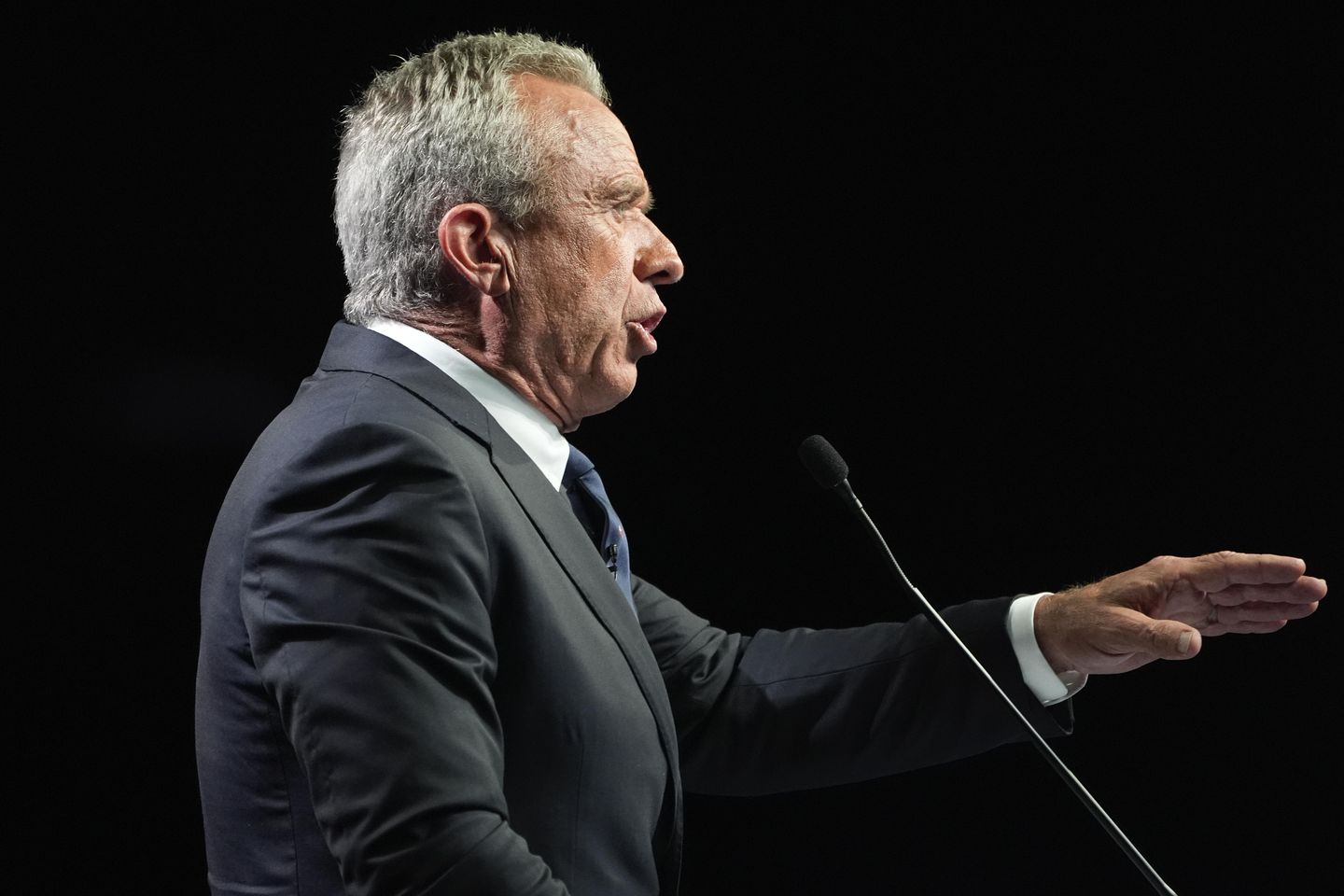In a surprising turn of events, independent presidential candidate Robert F. Kennedy Jr. made headlines on Friday when he announced that he would not take sides on 9/11 conspiracy theories. The son of the late Senator Robert F. Kennedy and nephew of President John F. Kennedy, Kennedy Jr. is no stranger to controversy. However, his decision to address the issue of 9/11 conspiracy theories head-on has raised eyebrows and sparked a heated debate among his supporters and detractors alike.
Kennedy Jr.’s statement came during a campaign stop in New York City, where he outlined his vision for a more transparent government if elected president in November. Speaking to a crowd of supporters, Kennedy Jr. said, “I know there are many theories out there about what really happened on 9/11. Some believe it was an inside job, while others think it was a foreign attack. But as president, I won’t take sides on this issue. What I will do is push for more transparency and accountability in our government’s response to the terror attack.”
The 9/11 terrorist attacks, which took place on September 11, 2001, have long been a source of controversy and speculation. While the official narrative is that the attacks were carried out by the Islamic terrorist group al-Qaeda, some believe that there was more to the story than meets the eye. Conspiracy theories surrounding 9/11 range from claims that the U.S. government orchestrated the attacks as a pretext for war in the Middle East to allegations of a controlled demolition of the World Trade Center towers.
Kennedy Jr.’s decision to remain neutral on the issue of 9/11 conspiracy theories has drawn both praise and criticism from various quarters. Some see it as a sign of his commitment to truth and transparency, while others view it as a cop-out or a failure to take a stand on a crucial issue. Regardless of where one stands on the issue, Kennedy Jr.’s announcement has reignited the debate over 9/11 and the need for a more thorough investigation into the events of that fateful day.
As the son of a prominent political family, Kennedy Jr. is no stranger to controversy. He has been an outspoken critic of government secrecy and corruption, and has called for greater accountability in politics. His decision to address the issue of 9/11 conspiracy theories is in line with his broader platform of promoting transparency and honesty in government.
In his speech, Kennedy Jr. also outlined his plans for addressing other key issues facing the country, including healthcare, education, and the environment. He emphasized the need for a more inclusive and compassionate society, one that values the well-being of all its citizens. Kennedy Jr. has positioned himself as a champion of the people, a candidate who is not afraid to take on the establishment and fight for the rights of the marginalized and disenfranchised.
Kennedy Jr.’s campaign has gained momentum in recent weeks, with many voters responding positively to his message of change and reform. His willingness to address controversial issues like 9/11 conspiracy theories has set him apart from other candidates and has drawn attention to his campaign. Whether or not Kennedy Jr. will be able to maintain this momentum and secure the presidency remains to be seen, but one thing is certain: his unconventional approach to politics has captured the imagination of many Americans.
In the coming months, Kennedy Jr. will continue to crisscross the country, meeting with voters and outlining his vision for the future. His campaign is gaining traction, and he is increasingly seen as a serious contender in the race for the White House. As the election draws nearer, all eyes will be on Kennedy Jr. and his campaign, as he seeks to bring about real change in a country that is hungry for leadership and direction.
Regardless of the outcome of the election, Kennedy Jr.’s decision to address the issue of 9/11 conspiracy theories will have a lasting impact on the political landscape. By refusing to take sides on the issue, he has opened up a space for dialogue and debate, challenging Americans to think critically about the events of 9/11 and the role of government in ensuring transparency and accountability. Whether or not Kennedy Jr. wins in November, his campaign has already sparked a national conversation that is sure to continue long after the election is over.
As the son of a political dynasty, Kennedy Jr. carries with him a legacy of public service and a commitment to social justice. His decision to run for president as an independent candidate reflects his belief in the power of democracy and the need for a more inclusive political system. By addressing controversial issues like 9/11 conspiracy theories, Kennedy Jr. is challenging the status quo and pushing for a more transparent and accountable government.
In the end, Kennedy Jr.’s campaign is about more than just winning the presidency. It is about inspiring a new generation of leaders and citizens to take a stand and fight for what they believe in. By refusing to take sides on 9/11 conspiracy theories, Kennedy Jr. is setting an example of courage and integrity that is sorely needed in today’s political climate. Whether or not he wins in November, Kennedy Jr. has already made his mark on the national stage, and his message of hope and change is resonating with voters across the country.









